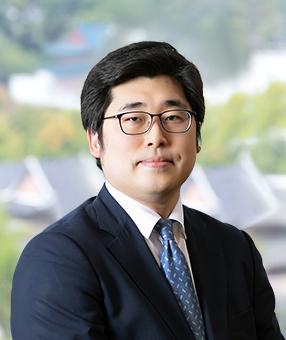The Korean Supreme Court has recently held that there must be no unreasonable discriminatory treatment based on “other circumstances that are not related to work” as well as a prohibition on wage discrimination based on social status or gender under the Labor Standards Act (“LSA”) and the Equal Employment Opportunity and Work-Family Balance Assistance Act (the “Equal Employment Opportunity Act”).
Background:
In this case, the plaintiff, a lecturer at a national university, filed a lawsuit against the defendant, the president of the university, seeking confirmation of nullification or cancellation of the defendant’s notice requesting partial return of the already paid lecture fee and the defendant’s payment of a reduced lecture fee. This was based on the claim that paying different lecture fees to full-time lecturers and part-time lecturers was unfair.
The Supreme Court opined that such disposition is a discriminatory treatment that goes against the principle of equal treatment and the principle of equal pay for equal work under the LSA and the Equal Employment Opportunity Act, and is therefore illegal. The lower court decision which dismissed the plaintiff’s claim has been remanded.
Details:
In the above decision, the Supreme Court clarified that both “the principle of equal treatment” (Article 6 of the LSA), which prohibits discriminatory treatment in working conditions based on social status, among others, and the principle of “equal pay for equal work” (Article 6 (1) of the Equal Employment Opportunity Act), which requires payment of the same wage for work of the same value regardless of gender, aim to practically realize the “principle of equality” under Article 11 (1) of the Constitution. As such, the employer should not discriminatorily pay wages based on social status or gender, and the employer must not unreasonably treat employees based on other circumstances, which are not related to work. Based on this premise, the Supreme Court has held that paying different lecture fees to full-time lecturers and to part-time lecturers constitutes unreasonable discrimination for a circumstance that is not related to work, and is in violation of the principles of equal treatment and equal pay for equal work, and thus, are invalid.
The Supreme Court also announced in a press release on the same day, that: (i) both the “principle of equal treatment” under the LSA and the “principle of equal pay for equal work” under the Equal Employment Opportunity Act aim to practically realize the “principle of equality” under the Constitution regarding labor relations; and (ii) there shall be no wage discrimination based on social status or gender, or unreasonable discriminatory treatment based on other circumstances that are not related to work.
Implications:
While current laws and regulations prohibit discrimination for reasons that are stipulated by law, such as fixed-term employment (under the Act on the Protection Etc. of Fixed-Term and Part-Time Employees), gender (under the Equal Employment Opportunity Act), nationality/religion/social status (under the LSA), and dispatch (under the Act on the Protection, Etc. of Temporary Agency Workers), there is no law or regulation that generally prohibits discrimination between employees.
However, the recent Supreme Court decision has presented a criteria for general prohibition of discrimination: “prohibition of discrimination based on other circumstances that are not related to working conditions under the employment agreement” based on the principle of equality under the Constitution, Article 6 of the LSA, and Article 8 of the Equal Employment Opportunity Act. Given the Supreme Court’s recent decision, if not stipulated by the current laws and regulations, discrimination between indefinite-term contract employees and regular employees, as well as discrimination between fixed-term employees and discrimination between regular employees could also be prohibited on the basis that such forms of discrimination constitute discrimination in working conditions, including wages based on conditions that are not related to work.
Also, it should be noted that violations of Article 6 of the LSA and Article 8 of the Equal Employment Opportunity Act are subject to criminal punishment, and such provisions should not be interpreted expansively or analogically against the defendant. However, the recent Supreme Court decision does not clearly explain what constitutes violations that are subject to criminal punishment, and continued controversy over the specific scope of application of the above provisions is expected.
Related Topics






